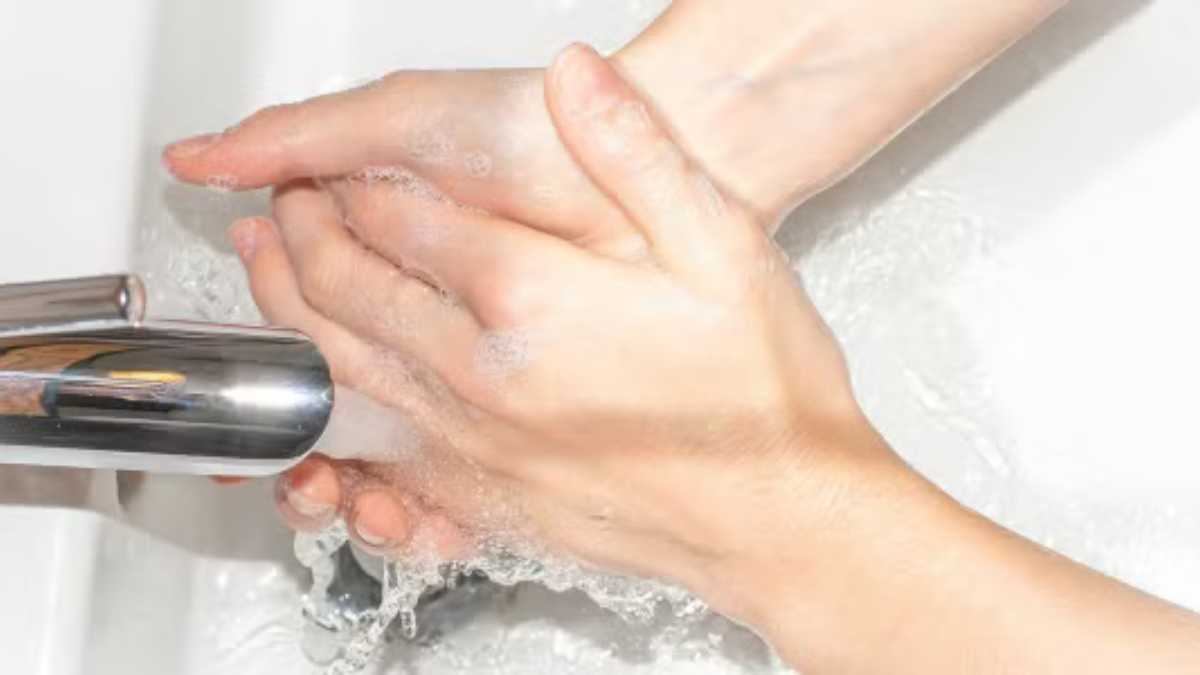Thorough hand washing protects against pathogens. High energy prices, however, raise the question: do I really need to wash my hands with hot water – or is cold water also sufficient to get rid of dirt, viruses and germs? We’ve studied the question in depth.
Handwashing reduces the incidence of infectious diseases, as confirmed by numerous scientific studies. And since the start of the Corona pandemic, we’ve internalized careful and frequent hand-washing: wetting your hands, soaping them thoroughly and, finally, rinsing off the soap with warm water. Stop! The question then arises: do we really need hot water? Is cold water not enough? A legitimate question, given the high cost of energy.
According to the German Federal Statistical Office, hot water accounts for an average of around 15% of total energy consumption. Around one in every three liters of water we consume is hot water. Heating cold water – for hand washing, for example – requires a lot of energy. Energy we can save?
Hand washing: hot or cold?
Hot water is thought to kill viruses and germs better. That’s why many of us turn on the hot water tap as much as possible, as a precaution – as the saying goes, a lot (of heat) goes a long way (the best possible protection against viruses).
But this is a mistaken belief: what keeps our hands clean is not hot or scalding water, but soap and the right technique. What counts is the thoroughness and duration of hand washing.
In a scientific study, researchers tested the effectiveness of soap in combination with different water temperatures (4 degrees, 13 degrees, 21 degrees, 35 degrees and 49 degrees). The result: the temperature of the water used for hand washing had no influence on bacteria reduction. This is also confirmed by the German Federal Centre for Health Education (BZgA): “Water temperature has no influence on the reduction of micro-organisms. It is therefore advisable to choose an individually comfortable water temperature”.
How much energy can be saved by washing hands in cold water?
There’s no global answer to this question: it depends on the method you use to heat your water. And, of course, how long you have to let the water run before it comes out of the tap hot.
“If you wash your hands five times a day, using four liters of cold water instead of hot water each time, a three-person household saves up to 55 euros a year, and even 140 euros if the water is heated electrically”, calculates the energy services provider.
- Wash your hands properly – here’s how
- Run hands briefly under cold running water.
- Soap thoroughly for 20-30 seconds, using plenty of soap.
- Don’t forget the palm and back of the hand, the spaces between the fingers and the fingertips.
- Rinse with cold running water.
- Dry hands thoroughly, as micro-organisms multiply more easily in a moist environment.
By the way: you don’t need a special soap with antibacterial additives to wash your hands.
Hand washing is particularly important in these situations:
- When we come home
- Before cooking
- Before eating
- After using the toilet
- After contact with raw meat
- After contact with animals
- After contact with garbage
- After blowing your nose, coughing or sneezing
- Before touching cosmetic products
- Before taking medication
- Save energy by washing your hands
A simple way to save energy is to wash your hands cold. Don’t forget to do it:
It goes without saying, but we sometimes forget: turn off the tap while soaping our hands.
The consumer association recommends: “At the washbasin, it’s a good idea to always turn the mixer tap to the cold position, i.e. to the far right. This way, you can decide each time you wash your hands whether cold water is enough or whether you prefer hot water.



